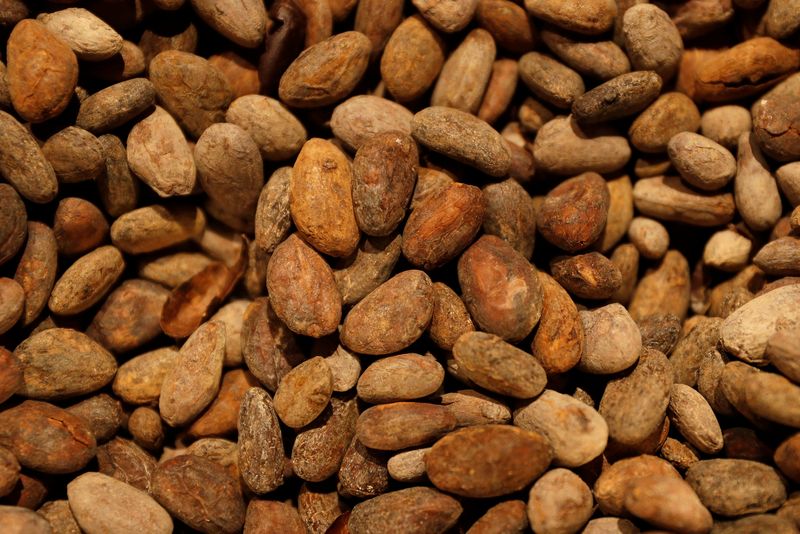Cocoa prices to head higher by end-2024 amid record deficit: Reuters poll
By Maytaal Angel
LONDON (Reuters) - Cocoa prices are expected to continue heading higher this year due to persistent supply shortages that will leave them at more than double last year's levels by the end of 2024, a Reuters poll of 12 traders and analysts showed on Wednesday.
London cocoa was seen ending the year at 7,600 pounds a metric ton, up 40% from Tuesday's close and 125% higher than at the end of 2023, according to the poll's median forecast.
Prices rose to a record peak of nearly 10,000 pounds in mid-April thanks to major crop problems in Ivory Coast and Ghana, which produce some 60% of the world's cocoa.
The poll projected there would be a record global deficit of 475,000 tons in the current 2023/24 season which runs from October to September, some way above the 375,000 ton deficit projected in the previous poll in February.
It saw the market flipping into a small surplus of 108,500 tons next season, but after three consecutive seasons of deficit, prices will take some time to settle lower given global stocks have been eroded, participants said.
Ted George, the founder of consultants Kleos Advisory, said that although production should improve next season and consumption weaken somewhat in response to high prices, he still expected a deficit in 2024/25 due to climate uncertainty.
Other participants expressed concern about widespread swollen shoot disease in Ivory Coast and Ghana and relatively steady demand as the chocolate industry will be forced to replenish its threadbare stocks next season.
Citi said it expected prices to "normalise in a still historically high $4,000-6,000/t range over the next 12-15 month period" as the market moves into surplus next season.
Production in top producer Ivory Coast was seen at 2 million tons next season, recovering from the 1.75 million tons expected in the current season.
No. 2 producer Ghana's 2024/25 crop was seen recovering to 640,000 tons from 450,000 tons this season.
New York cocoa prices were seen ending the year at $8,600 per ton, up 27% from Tuesday's close and 107% on the year.
Source: Investing.com
